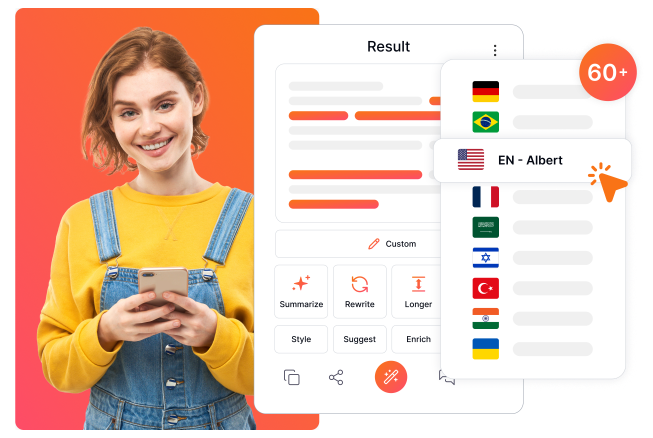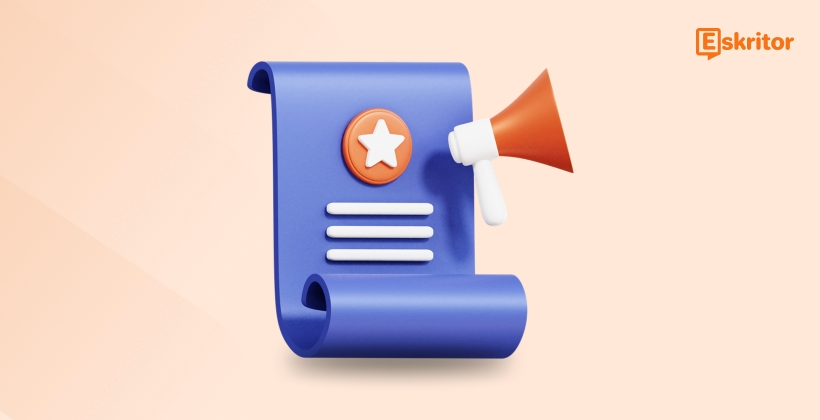Why AI Writers Are Essential for Modern Businesses
Why AI Writers Are Essential for Modern Businesses
Blog Article
Effortless Precision with AI Editing Solutions
Artificial intelligence (AI) publishing engineering has changed fast over the past decade, reshaping the way in which we create and talk with published content. From syntax correction instruments to AI-generated novels, the number of choices seem limitless. But where precisely is that technology heading? Let's explore the inventions, problems, and possible potential of AI Editing.

How AI Publishing Technology Operates Nowadays
At their core, AI publishing technology relies on Natural Language Running (NLP) and unit learning. These systems help types to know, create, and increase individual language. Instruments available nowadays do well at responsibilities like:
1. Material Formation
AI has reached a point wherever it could generate complete website posts, social networking captions, and also information articles. Some designs are capable of mimicking individual publishing designs therefore effectively that unique between AI- and human-written material is becoming significantly difficult.
2. Grammar and Model Recommendation
AI-powered publishing personnel don't just check always for syntax and punctuation errors; in addition they provide recommendations to enhance tone, clarity, and syntax, creating complicated publishing available to an extensive audience.
3. Message Examination
AI may evaluate the psychological tone of a piece, enabling companies to determine how their communications can resonate with readers. This really is specially of good use in advertising and client interaction.
The Current Trends in AI Writing Technology
Many trends are shaping another period of AI-powered publishing resources:
• Personalization
AI writing engineering is increasingly capable of tailoring material to personal preferences. Models can adjust to a user's writing model, ensuring the productivity feels authentic.
• Multilingual Features
Many AI instruments are growing their international achieve by giving enhanced interpretation features and support for numerous languages.
• Increased Research Functions
AI instruments today get the capability to analyze great levels of data and offer fact-checked, well-researched writing in moments, simplifying the procedure for experts in industries like legislation, finance, and journalism.
What the Future Keeps for AI Publishing Engineering
1. Increased Creativity
While recent AI is proficient at generating content, their imagination remains restricted to patterns within its instruction data. Potential AI is not just estimated to aid but to generate unique, topical works that challenge human imagination.
2. Smooth Cooperation
Envision an AI that operates along side you in real-time, finishing your sentences, performing live edits, and also brainstorming ideas. AI publishing resources may possibly soon become co-authors, permitting creativity to flow uninterrupted.
3. Moral and Accessible Style
With rising matter about plagiarism, misinformation, and prejudice, developers work toward more clear AI instruction functions and moral implementation. Potential tools will likely present more extensive details and steps to make certain accountability.
Issues and Concerns
The development of AI publishing engineering isn't without hurdles, including:
• Moral Problems

Who possesses content produced by AI? Just how can we assure AI-generated material is not distributing misinformation? These debates remain unresolved.
• Human-AI Stability
May AI complement individual creativity or entirely change certain jobs? Several authors and musicians be worried about their relevance in an AI-driven world.
• Supply Split
Not all companies or regions have equal access to cutting-edge AI resources, increasing issues about the impact of the engineering on worldwide inequality.
Adjusting the Way We Create
AI writing technology continues to be in its infancy compared to their potential. Whether you are a student developing documents, a material marketer targeting particular readers, or a novelist seeking creativity, AI tools may continue to revolutionize the writing process. The next decade promises breakthroughs that mix human ingenuity with device intelligence, making a future wherever publishing is more effective, accessible, and impactful than actually before.
Report this page